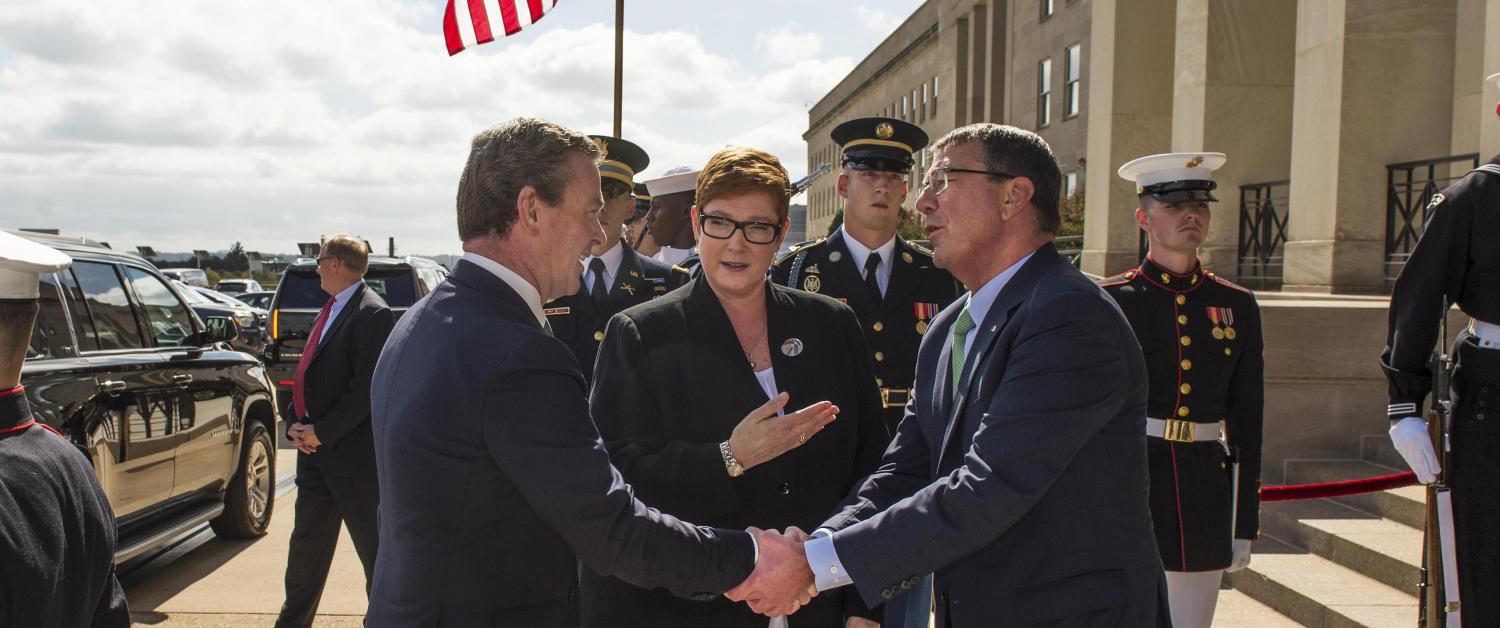The election of Donald Trump as president represents a serious challenge to Australia’s alliance with the United States.
After all, many of Mr Trump’s long-held foreign policy views run counter to Australia’s interests.
Mr Trump has isolationist sympathies; Australia depends on an engaged, internationalist America. Mr Trump is skeptical of alliances; we see ourselves as a reliable ally. Mr Trump has a peculiar regard for strongmen such as Vladimir Putin; we are an old democracy and a free society. Mr Trump is opposed to free trade agreements (or at least those he did not negotiate himself); Australia is a trading nation.
In the past 15 years, America’s global policy has fluctuated. Washington’s missteps in Iraq and elsewhere, along with its changeability, raise questions about whether the United States will continue to act as the global hegemon.
That is why in my Boyer Lectures last year I called for 'a larger foreign policy'. We need to try to shape our environment. We need to thicken our connections with important Asian states - not just China but India, Japan, South Korea, Vietnam, Indonesia and others - and build out our relationships with like-minded countries outside the region, including our new partner France. We also need to reinforce those international institutions in which Mr Trump is an unbeliever, which is why I support the campaigns initiated by Foreign Minister Julie Bishop for the UN Security Council and the Human Rights Council.
However, none of this is to say that we should pull back from our alliance with the United States. Shadow Foreign Minister Penny Wong is right that this is a ‘change point’ but the answer is not, as some argue, to do less with Washington.
The benefits of the alliance to Australia remain. ANZUS gives us protection from a strategic threat, unlikely though that may be. Our interactions with US military forces and the US intelligence community keep the Australian Defence Force sharp and our policymakers well-informed.
Furthermore, Washington is the central pillar of the global liberal order of which Australia is a beneficiary. Through our alliance with the United States, we contribute to global security. And a robust US presence in Asia is crucial to a stable regional balance. We would be mad to do anything that encourages Mr Trump’s instincts to retrench. Rather we should add our voices to those in Washington and in other allied capitals who are counseling him in the direction of prudence. In future, we will need to engage more with Washington, not less, in order to try to influence the course of US foreign policy. We will need to be a busy ally.
Prime Minister Malcolm Turnbull was right, therefore, to reach out to President-elect Donald Trump. Some Australians, understandably offended by the tone of Mr Trump’s campaign, have found fault with this. But as I wrote in the Sydney Morning Herald a few days after the election, we must ‘grimace and bear it’. Our alliance with Washington is bigger than any one individual – even the president of the United States.
Photo courtesy US Department of Defence
